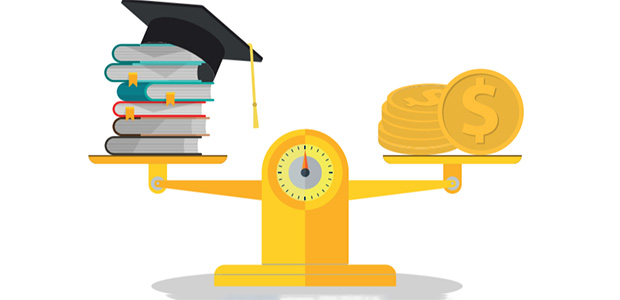
The importance of financial education
I used to honestly believe I’d missed the lesson in which someone explained the jargon on a payslip. After all, we wouldn’t drive for the first time without someone explaining how to turn the car on.
The rising cost of living has thrown the financial conversation into the forefront of people’s minds – a staggering 76% of us now feel anxious about our current financial situation. Financial education has the potential to reduce stress and empower a positive mindset, as well as improve everyone’s overall quality of life. But none of this will happen if it isn’t relatable and easy to understand.
My observations from teaching finance
I’ve taught more than 10,000 young adults in the last year and it’s becoming clearer that social media is a major source of information for them. As they scroll through their TikTok feeds they come across influencers showing off the fast cars and mansions they claim to have paid for through investing in high-risk avenues such as cryptocurrency. These so-called experts may not have the appropriate financial training or background to provide reliable investment advice, but the sad fact is a lot of young people don’t see past the fast car.
I worry that this high-risk investing behaviour will lead to young adults viewing investment as a way to get rich quick, rather than a long[1]term strategy for building wealth. It worries me to think these young people could leave school and put themselves in a negative financial situation. They would be paying the price for years to come, instead of building a stable and promising financial footprint that will benefit them throughout their lives.
Older students especially are keen to tell, or even show me their crypto accounts, but when I ask them how much they expect to be taxed on their ‘big wins’ they can’t answer because their education stopped there.
Further observations
From ages 6 – 63, the sentiment from everyone I have spoken to is the same: “I just want to feel in control. If I could just understand ‘this’ – be it inflation through to pensions – I’d know what to do next with my money.”
It is important to understand at the very beginning how things are paid for, why the price of those items might change over time and what we have to do to earn money. That is your base level and, year on year, you can build on the information you need to stay in control.
Control for some could be understanding their taxes or using financial education to build the next innovative business of the future, but for others it could be reducing the gender pay gap by staying in the workforce longer because they budgeted for possible career breaks and know their worth.
What does the future look like?
A study by Cambridge University found that our money mindset is developed as early as the age of seven, and whilst there is some finance education on the curriculum at senior level, there is nothing for juniors and very few resources once you leave the education system.
Reaching financial freedom looks different for everyone. Retiring at 66 is the dream for some, whereas mini retirements throughout their life works for others. Financial education therefore needs to be adaptable.
Not everyone wants to be an accountant (I did, but I won’t say it was my first choice of career) but whatever path in life you take, money will be a part of it. Having a solid financial saving plan can help you correct any bad financial habits picked up from those around you. Instead of viewing money as the route of all evil, see it as your platform to buying your first car with savings or even launching your new business idea and understanding the process behind funding that venture.
In recent years, people have become more aware of the importance of looking after their mental health and it’s clear that good financial education has an important role to play here too. According to one shocking statistic, 25% of the UK population has less than £100 in savings, but learning effective ways to budget and save your way out of tricky situations can help reduce those money anxieties from one payslip to the next. You are taking back control.
What are we doing to combat this?
Over the last few years, I have been rewriting what financial education looks like to support the new generation. Financial freedom looks different for everybody. I think of financial education as something that grows alongside our personal situation – there is too much learn all at once but as our personal circumstances evolve so can our financial literacy.
We offer two dimensions to our financial education – live workshops for schools and workplaces, and an online platform that follows on from this to teach the finance you need to know, whatever your life stage.
Conclusion
Financial education should be part of everyday life. Something we openly talk about and feel comfortable, even proud of, passing on correct finance tips like we pass on recommendations for the best places to eat.

